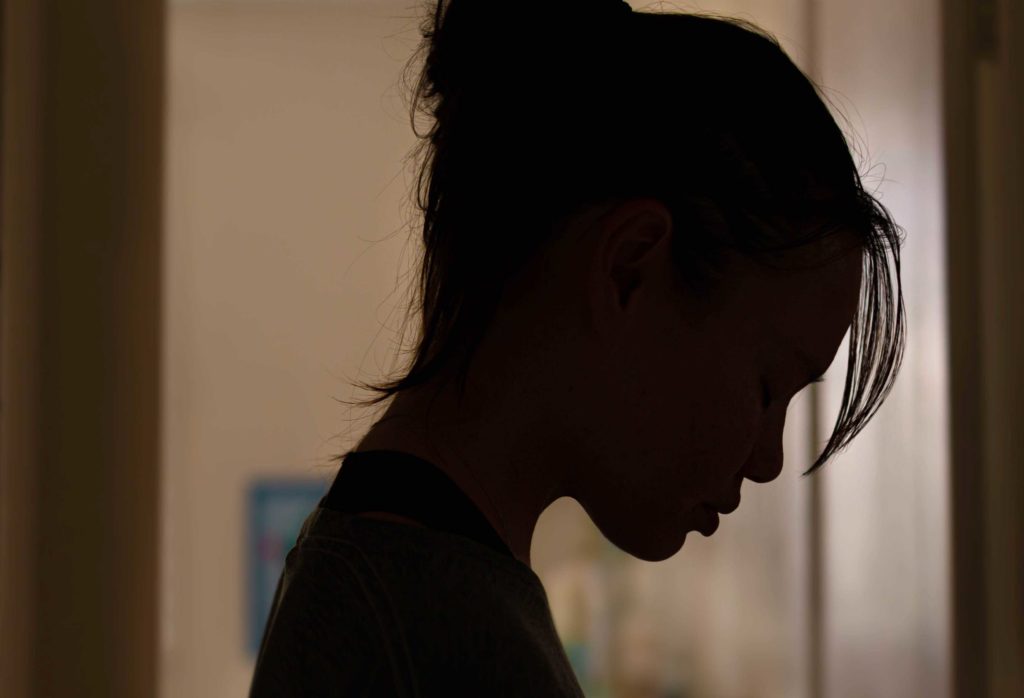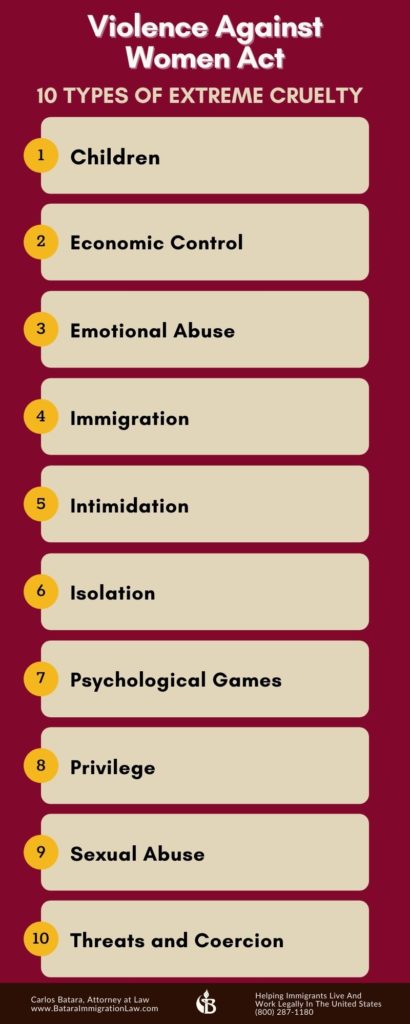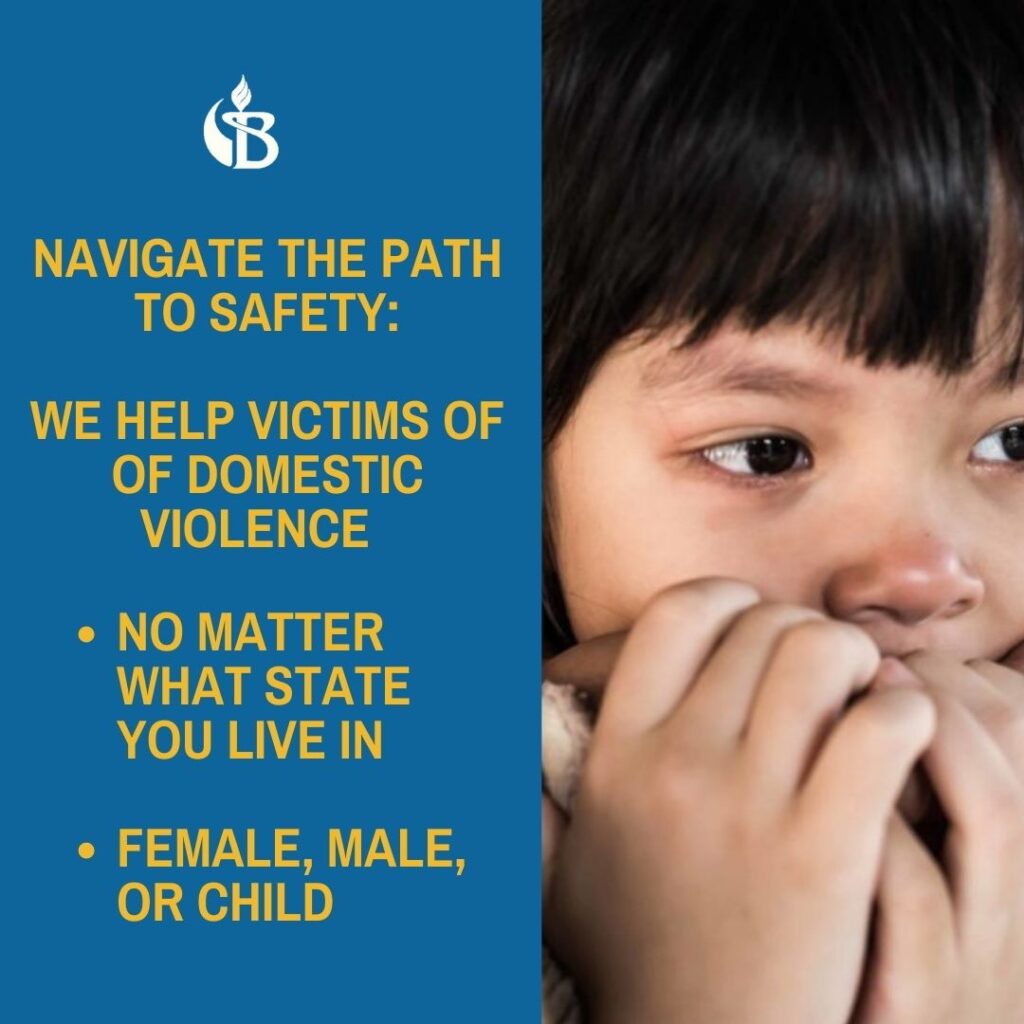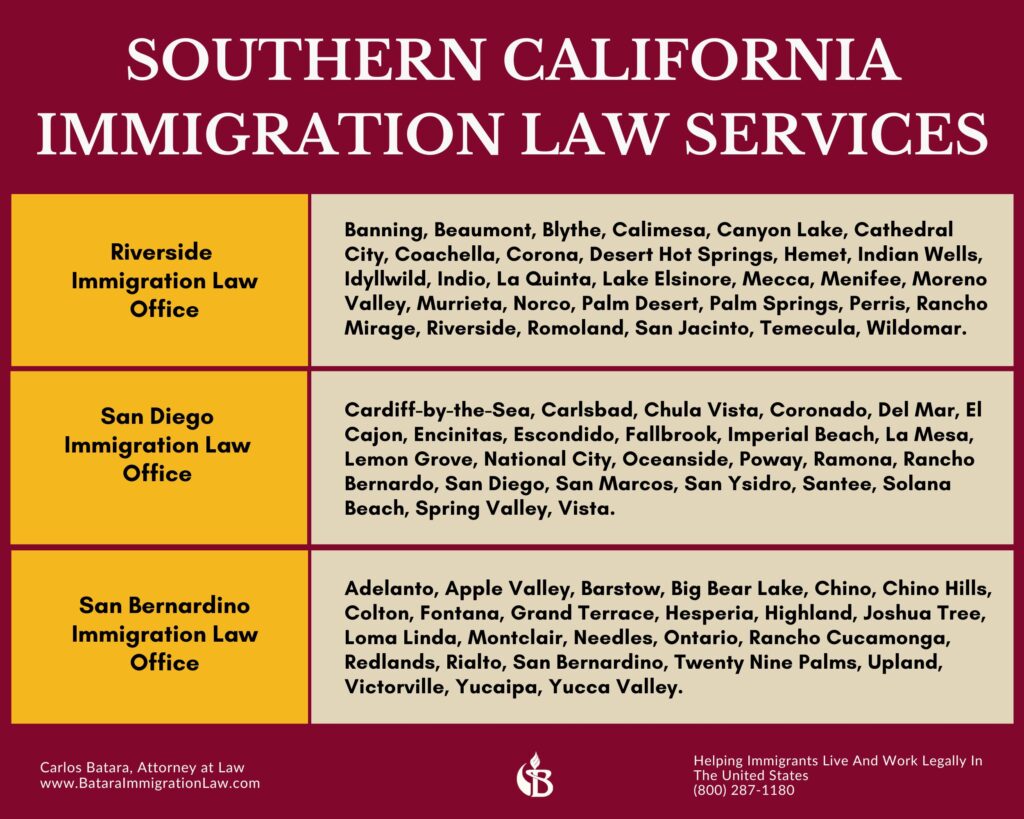Even If You Have Been The Victim Of Domestic Violence . . .
We Can Help You Fight Deportation And Become A Permanent Resident

VAWA For Immigrants
As a victim of abuse, you may feel trapped, forced to remain living with your U.S. citizen or permanent resident spouse.
Due to your lack of immigration papers, you might think there is no way out.
The abuse takes many forms.
For instance:
- Perhaps your permanent resident spouse physically beats you, doesn’t allow you to have any friends, and refuses to file immigration papers to petition you for a green card.
- Maybe your U.S. citizen spouse divorced you yet continues to call you insulting names, won’t give you any child support, and threatens to call the police to deport you.
- Or as the oldest child, you have watched your legalized parent physically attach your mother as well as verbally and emotionally mistreat you and your younger sister.
However severe the domestic violence you’ve experienced, you don’t need to give up.
With or without your spouse, there are options to help you and your children.
With or without your spouse, you can fight deportation.
With or without your spouse, you can win permanent residence.

Table Of Contents
- What Is The Violence Against Women Act?
- Who Qualifies To Self-Petition For VAWA?
- What Types Of Evidence Do You Need To Qualify For A VAWA Green Card?
- How To Prove Extreme Cruelty In VAWA Cases
- How VAWA Protects Immigrant Spouses And Children Trapped In A Web Of Abuse
- Don’t Let Common Misconceptions Prevent You From Filing For VAWA
- Frequently Asked Questions About The Violence Against Woman Act
- Unlocking Justice: Helping Immigrants Win Difficult VAWA Cases Together
- Breaking Chains, Healing Lives: Nationwide Services For Domestic Abuse Victims
What Is The Violence Against Women Act?
The Violence Against Women Act (VAWA), passed by Congress in 1994, provides special protection for both immigrant spouses and children who have suffered battery or extreme cruelty at the hands of a United States citizen or lawful permanent resident.
Although victims of domestic violence are usually female, the Act also covers abused male spouses and children.
This means if your husband, wife, father, mother, stepfather, or stepmother, who is a U.S. citizen or lawful permanent resident, has abused you or your child physically, sexually, or psychologically, you are entitled to file for permanent residence benefits under VAWA.
Despite political opposition, the program was reauthorized to 2027. At that point, it will again go through Congressional review.
Although this article is focused on abused spouses and children, a parent mistreated by an United States citizen adult son or daughter may also qualify for a VAWA green card.
Who Qualifies To Self-Petition For VAWA?
Although VAWA stands for the Violence Against Women Act, its protection is not limited to immigrant women.
The following persons are eligible to file self-petitions under VAWA:
- Abused or battered spouses of U.S. citizens or lawful permanent residents. This includes abused and battered male spouses.
- Spouses of U.S. citizens or lawful permanent residents who are not abused, but whose children are abused.
- Abused or battered male and female children of U.S. citizens or lawful permanent residents.
- Parents who are abused by their U.S. citizen adult son or daughter
What Types Of Evidence Do You Need To Qualify For A VAWA Green Card?
As noted earlier, many immigrant victims of domestic violence do not think they qualify for VAWA protections and benefits.
For instance, you may have been told only battered immigrant women can win a VAWA grant of permanent residence. This view is wrong.
Under VAWA, you can also win if you have been subject to extreme cruelty.
How To Prove Extreme Cruelty
In VAWA Cases
Let’s take a look at some examples of extreme cruelty:

Children
- Threating to take the children away from you
- Questioning the kids about what you did all day while the abuser was at work
- Yelling and screaming at the kids, punishing kids excessively
Economic Control
- Controlling all the money, credit cards, and bank accounts
- Not giving you any money to spend without permission
- Keeping your name off bank accounts, rental agreements, and utility bills
Emotional Abuse
- Calling you names and putting you down in front of other people
- Putting down your culture, country, language, or race
- Opening and reading all your mail before giving it to you
Immigration
- Refusing to file papers to legalize your status
- Threatening to withdraw your immigration papers
- Destroying important immigration documents
Intimdation
- Smashing things, throwing things
- Kicking, hitting, harming your pets
- Driving crazy to scare you
Isolation
- Limiting you from the use of the telephone
- Preventing you from visiting or speaking with family members
- Prohibiting from letting you work, go to school, or learn English
Psychological Games
- Threatening to report you or the kids to ICE
- Making you dependent on the abuser for transportation
- Threatening to report you for “working under the table”
Privilege
- Treating you like a servant
- Making you dependent on the abuser for transportation
- Making you feel guilty about the children when they act up
Sexual Abuse
- Having relationships with other women or men
- Accusing you of sleeping with other people
- Calling you names like “prositute”, “mail order bride”
Threats And Coercion
- Threating to leave you, divorce you
- Making you commit criminal acts
- Threatening to hit you, punch you, slap you
If you have been mistreated in these types of ways, you have a chance to win VAWA benefits.
Of course, documenting such facts is difficult.
It is not uncommon for immigrant spouses to submit police reports and divorce court records in hostile breakups that have the opposite effect they intended.
This is why you may need professional assistance to help gather, organize, and present the proof required for success.
How VAWA Protects Immigrant Spouses And Children Trapped In A Web Of Abuse

If you’re a battered or abused immigrant – female, male, or child – there are three distinct ways you can seek benefits under the Violence Against Women Act.
- Self-Petitions For VAWA Green Cards – VAWA is a special immigration program that allows you to file a self-petition, based on your family relationship, to obtain green card benefits on your own without your abuser’s consent
- Immigration Court Deportation Defense – You can use special VAWA Cancellation of Removal rules to fight against being deported at immigration court hearings
- Modify Conditional Residency Status – You can independently seek to remove the two-year restriction on your card status due to domestic abuse, if your spouse abandons or refuses to help you before the limit on your conditional permanent residency expires.
In addition, if your self-petition is approved, you can obtain a work permit – while you’re still waiting for your VAWA interview to become a permanent resident.
And once you’re granted a green card, the wait for VAWA recipients to seek citizenship is only three years.
Other than showing abuse and victimization, the rules for the various abused individuals – spouses, parents, and children – are vastly different. This means immigrants who seek VAWA protection need to carefully review the regulations which apply to their situation.
Don’t Let Common Misconceptions
Prevent You From Filing For VAWA
Quite often, victims do not file VAWA applications because they are misinformed about its requirements. Here is a list of the most common misconceptions about VAWA cases:
- VAWA benefits are only available to women. This is incorrect. Males and children (including male children) can seek protection under VAWA.
- The abuse must be physical. Not true. Although physical harm and battery are strong indicators of domestic abuse, many victims qualify each year for VAWA benefits based on primarily psychological victimization.
- There must be a police report to seek VAWA protection. Although police reports, restraining orders, hospital records, and victim counseling treatment are important evidence to demonstrate domestic violence, they are not required to file or prove eligilibility for a favorable grant of VAWA benefits.
- VAWA applicants need to be divorced. Spouses who have been victims do not need a divorce or separation to file a Violence Against Women Act application. A divorce, in fact, can undermine a victim’s eligibility for benefits under VAWA in some cases.
Do not let these misunderstandings deter you from applying for VAWA.
While your VAWA application is being processed, you have the right to stay with or leave the abuser. It’s your decision, and your decision alone. Without pressure from your spouse or parent.
The whole process is completely confidential and private.
Your abusive spouse – or ex-spouse – will never be told about your VAWA petition.
And if you use the services of a VAWA immigration lawyer, the government will not contact your directly.
Frequently Asked Questions About The Violence Against Woman Act
Immigrant victims of abuse and domestic violence often have questions about various aspects of VAWA, covered in the following articles:
Unlocking Justice: Helping Immigrants Win Difficult VAWA Cases Together
Violence Against Women Act cases are a unique type of immigration family services.
Although it is based on a family relationship, you can file for immigration benefits without a family member to sponsor you.
If the truth be told . . .
More often than not, trying to do this on your own is a bad idea. One mistake can ruin your chance for success. If you lose, you may be placed in immigration court to face deportation charges.
Domestic violence is not easy to discuss for most victims.
But if you have been abused, in order to win, you need to present your case with careful detail. You cannot afford to hold back the truth.
Because your paperwork has to be accurately prepared – and your evidence strongly laid out – you need to find an immigration attorney who makes you feel comfortable when you share painful moments you’d rather forget.
Teamwork is crucial in VAWA cases.
You are not required to hire an attorney to help you.
Here’s what you must consider if you are thinking about handling your case on your own.
Your decision should be based on your knowledge of immigration regulations, your ability to prepare the evidence required for success, and your inner strength to push forward even if the government challenges the authenticity of your claims.
If you decide you need help . . . we’re here to assist you.
Breaking Chains, Healing Lives: Nationwide Services For Domestic Abuse Victims
For over 25 years, as a VAWA defense attorney and a family-based green card lawyer, Carlos Batara has fought the spread of violence against immigrants by their spouses across Southern California.
Carlos’ legal experience includes handling difficult family law, divorce, and restraining order cases. He has combined deportation defense protections under VAWA with protections under family law and criminal law provisions for many battered spouses and children.
Our office is ready to care, protect, and guide you through the process from being a victim of domestic mistreatment to becoming a lawful permanent resident of the United States.
We provide a full range of VAWA services for abused immigrants throughout the United States via our online and virtual immigration office.
We also offer direct, in-person help for clients living in the Southern California region.

Riverside VAWA Immigration Services
Our Riverside and Hemet immigration law offices assist VAWA victims who live in or nearby Banning, Beaumont, Blythe, Calimesa, Canyon Lake, Cathedral City, Coachella, Corona, Desert Hot Springs, Hemet, Indian Wells, Idyllwild, Indio, La Quinta, Lake Elsinore, Mecca, Menifee, Moreno Valley, Murrieta, Norco, Palm Desert, Palm Springs, Perris, Riverside, Rancho Mirage, Romoland, San Jacinto, Temecula, and Wildomar.
San Diego VAWA Immigration Services
Our San Diego and Escondido offices help abused immigrant spouses and children from Cardiff-by-the-Sea, Carlsbad, Chula Vista, Coronado, Del Mar, El Cajon, Encinitas, Escondido, Fallbrook, Imperial Beach, La Mesa, Lemon Grove, National City, Oceanside, Poway, Ramona, Rancho Bernardo, San Diego, San Marcos, San Ysidro, Santee, Solana Beach, Spring Valley, and Vista.
San Bernardino VAWA Immigration Services
At the San Bernardino office, we guide VAWA applicants living in or close to Adelanto, Apple Valley, Barstow, Big Bear Lake, Chino, Chino Hills, Colton, Fontana, Grand Terrace, Hesperia, Highland, Joshua Tree, Loma Linda, Montclair, Needles, Ontario, Rancho Cucamonga, Redlands, Rialto, San Bernardino, Twenty Nine Palms, Upland, Victorville, Yucaipa, and Yucca Valley.
If you’ve been the victim of domestic violence, now or in the past, and you’re serious about discovering how to win permanent residence . . .
Let’s schedule your Strategy And Planning Session today.




